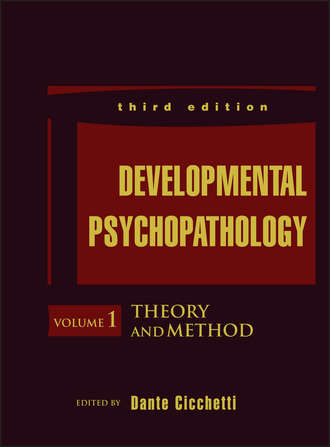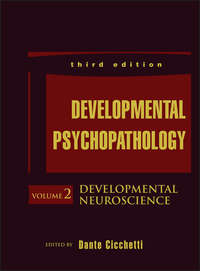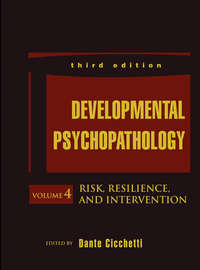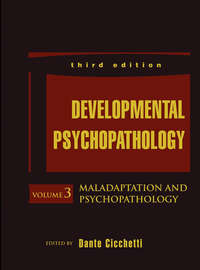
Полная версия
Developmental Psychopathology, Theory and Method
The seminal reference for the latest research in developmental psychopathology Developmental Psychopathology is a four-volume compendium of the most complete and current research on every aspect of the field. Volume One: Theory and Method focuses on the theoretical and empirical work that has contributed to dramatic advancements in understanding of child and adult development, including findings in the areas of genetics and neurobiology, as well as social and contextual factors. Now in its third edition, this comprehensive reference has been fully updated to reflect the current state of the field and its increasingly multilevel and interdisciplinary nature and the increasing importance of translational research. Contributions from expert researchers and clinicians provide insight into how multiple levels of analysis may influence individual differences, the continuity or discontinuity of patterns, and the pathways by which the same developmental outcomes may be achieved. Advances in developmental psychopathology have burgeoned since the 2006 publication of the second edition ten years ago, and keeping up on the latest findings in multiple avenues of investigation can be burdensome to the busy professional and researcher from psychology and related fields. This reference solves the problem by collecting the best of the best, as edited by Dante Cicchetti, a recognized leader in the field, into one place, with a logical organization designed for easy reference. Get up to date on the latest research from the field Explore new models, emerging theory, and innovative approaches Learn new technical analysis and research design methods Understand the impact of life stage on mental health The complexity of a field as diverse as developmental psychopathology deepens with each emerging theory and new area of study, as made obvious by the exciting findings coming out of institutions and clinics around the world. Developmental Psychopathology Volume One: Theory and Method brings these findings together into a cohesive, broad-reaching reference.




